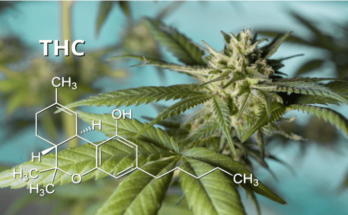Are you struggling with depression? If yes, then you must have tried different medical treatment options. However, there are other ways to overcome depression without taking pills. This article will discuss seven proven methods to cure depression without medication.
Depression is a mental health condition that comes with sadness and suicidal thoughts. It affects over 300 million people worldwide. In fact, according to WHO, depression is now the leading cause of disability globally. In 2016 alone, approximately 350 million adults experienced symptoms of depression.
Many people turn to medication to treat their depression symptoms. But do these medications without other side effects? What other options exist? We’ll find out in this article.
1. You May Try Red Vein Kratom
Red vein kratom is a famous strain among the Kratom strains. Kratom is a tropical tree native to Southeast Asia, and its leaves contain chemicals that may bind to opioid receptors in the human body. These receptors play a role in regulating our emotions. Some people use kratom to potentially treat chronic pain, while others use it to manage symptoms associated with opioid addiction.
However, red vein kratom can be an excellent choice for general fatigue. With a milder effect than many other strains, it’s great for anyone who wants to experience a lighter effect o.
It would help if you extensively researched the best quality red vein kratom. Also, consult an expert to know if it is the right option for you.
2. Stop Drugs and Alcohol Intake
People often use alcohol to cope with sadness, loneliness, anxiety, anger, or guilt. Unfortunately, it doesn’t work well as a solution. In fact, it makes things worse.
Alcohol and drugs are often addictive and can cause serious health problems. In fact, research suggests that chronic substance abuse can change the brain’s chemistry. Thus, it makes people more vulnerable to developing depression later in life.
3. Exercise
Exercising is an excellent method to overcome depression. Regular exercise helps release endorphins into the bloodstream. Endorphins are natural substances produced by the body that make us feel happy.
Exercising also increases blood flow to the brain. As a result, it improves moods and reduces stress levels.
Research shows that depression makes it harder for people to start physical activity. But a lack of movement can also make symptoms worse for them.
From there, the research team recommends that depressed people build up their physical activity levels for several days and weeks. This gradual approach is recommended because current guidelines suggest that people aim to complete 150 minutes of moderate-intensity aerobic activity each week.
4. Maintain Positive Thoughts
Maintaining positive thoughts can improve your outlook on life. You might think that your current situation is hopeless, but there are things you can do to make yourself happier. Here are some tips to help you change your thoughts:
- Take a deep breath: This helps clear your mind and relax you.
- Think about what makes you happy: What brings joy into your life? Do you enjoy spending time with friends and family? Is it reading books or watching movies? Whatever it is, focus on those activities.
- Make a list of everything you like about your life. Write down the things that bring you happiness.
- Be grateful: Even though you may face difficult times now, remember how lucky you are. Try to find something to be thankful for every day.
- Focus on the present moment: Don’t worry too much about the future or dwell on the past. Instead, concentrate on what you’re doing right now.
5. Set Realistic Goals
Setting realistic goals will help you achieve success. If you set unrealistic goals, you’ll probably fail. However, if you set achievable goals, you can succeed better.
For example, if you want to lose weight, wait to set a goal of losing 10 pounds in one month. Instead, set a goal of losing 1 pound per week.
Also, it’s essential not to give up. It’s easy to get discouraged when you don’t meet your expectations. But keep going!
6. Try Talking Therapy
Talking therapy is a type of psychotherapy where you talk about what bothers you and how it affects your life. You might work with a therapist or counselor.
Here are some types of talking therapies to try:
- Cognitive behavioral therapy (CBT) helps you understand why you think and feel the way you do, thereby improving them.
- Dialectical behavior therapy (DBT) teaches you to accept your thoughts and emotions and how to change them.
- Interpersonal therapy (IPT): It focuses on relationships and communication patterns.
- Mindfulness-based cognitive therapy (MBCT) teaches you skills to manage emotions.
- Narrative therapy: This helps you explore memories and events.
- Psychoanalysis: With this approach, you discuss past experiences and try to figure out what went wrong.
7. Sleep
Studies say people need about 7 to 9 hours of sleep every night. This includes both night-time sleep and daytime naps. If you don’t get enough sleep, it can affect your ability to think clearly and make good decisions. Getting too little sleep can even lead to weight gain.
In addition to helping, you feel better, sleep plays a role in your physical health. When you’re well rested, your immune systems work correctly, and you’re less likely to catch colds and flu or even feel depressed. You also tend to eat healthier and exercise more.
Conclusion
Depression doesn’t have to be a part of your life forever; there are many ways to overcome it without medication. By following these tips, you can start feeling better today.




